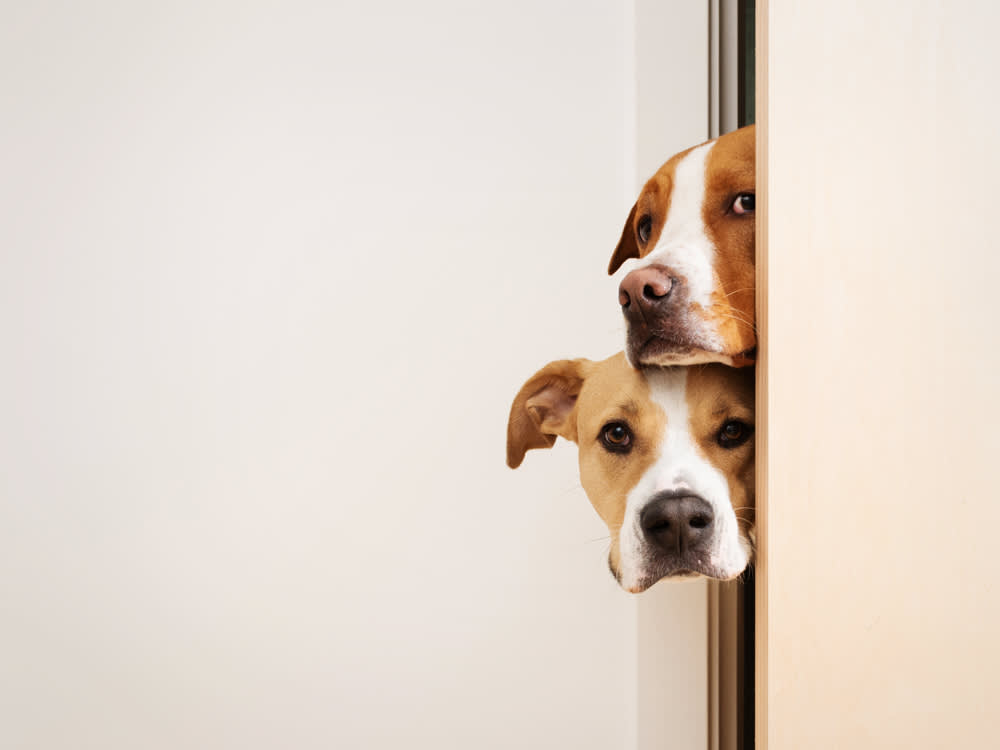Will My Skittish Dog Always Be Skittish?
Does your dog cower or startle easily?
Does your dog cower or startle easily?
by Kelly Villa, | July 31, 2024

Alex / Adobe Stock
It’s an experience many pet parents have: their once fearless puppy suddenly becomes a skittish dog who startles easily. The good news? This skittishness is likely part of a normal developmental phase in dogs called a “fear period.” The good news: your skittish dog likely won’t stay skittish forever.
Fear periods are times during which young dogs are more likely to become scared by triggers that didn’t formerly bother them, like loud sounds outside or new people. Some signs your dog is fearful include body language such as crouching, lying down and freezing, panting, yawning, putting their ears back, and tucking their tail.
The first fear period happens around the time puppies leave their litter and are exposed to a new environment without the protection of their mother. The second generally happens when a dog is an adolescent (between six to fourteen months) and has been called “juvenile onset shyness” by behaviorist and dog trainer Patricia B. McConnell, PhD.

Turns out, adolescence isn’t just tough for humans—it can be hard on dogs, too.
These phases help teach young dogs how to be cautious and are just that: phases. So, if you suddenly find your dog cowering when they hear a loud car pass or running away from house guests, don’t panic. These periods generally last a few weeks and don’t have lasting effects of fearfulness.
When your dog is frightened by something, you should first and foremost remove them from the situation or allow them to move away, if that’s possible. This won’t reinforce their fear but will help build their trust in you. In addition (or if that’s not possible), you can also remain calm and talk in a relaxed, cheerful way to show your dog you’re not afraid. Providing comfort by petting them or giving them something they love, such as a treat, is also helpful; teaching them that good things can follow scary things will help them overcome their fear.
If your dog remains anxious and fearful for longer than a few weeks at these expected developmental phases or has always seemed overly skittish, they are likely dealing with deeper anxiety and will need more help overcoming their fearfulness. In this case, it’s important to recognize these signs as soon as possible — over time, fearful dogs act more intensely, become harder to distract, and can become destructive or reactive — and consult a veterinarian and/or animal behavior specialist.

Kelly Villa is a freelance writer and contributor to various pet publications.

Behavior & Training

Behavior & Training

Behavior & Training

Behavior & Training

Behavior & Training

Behavior & Training